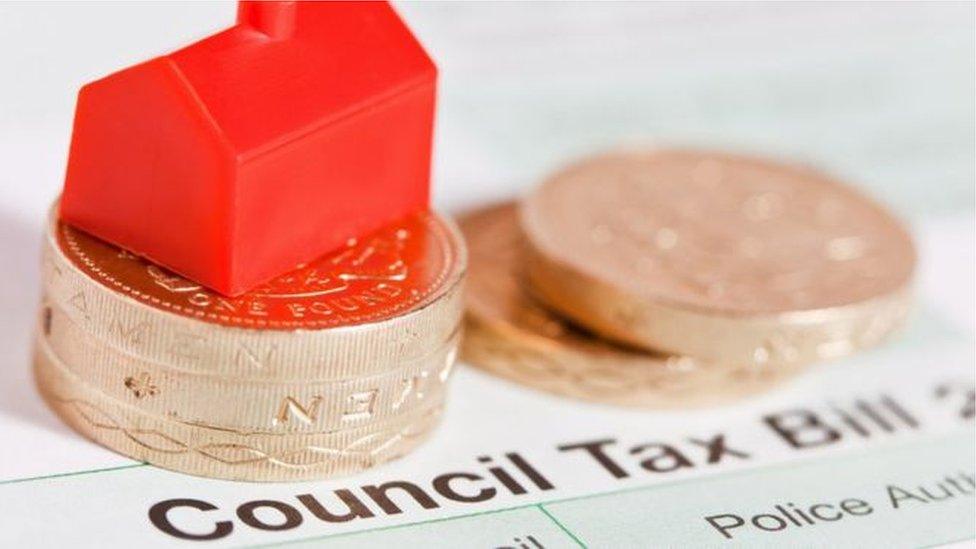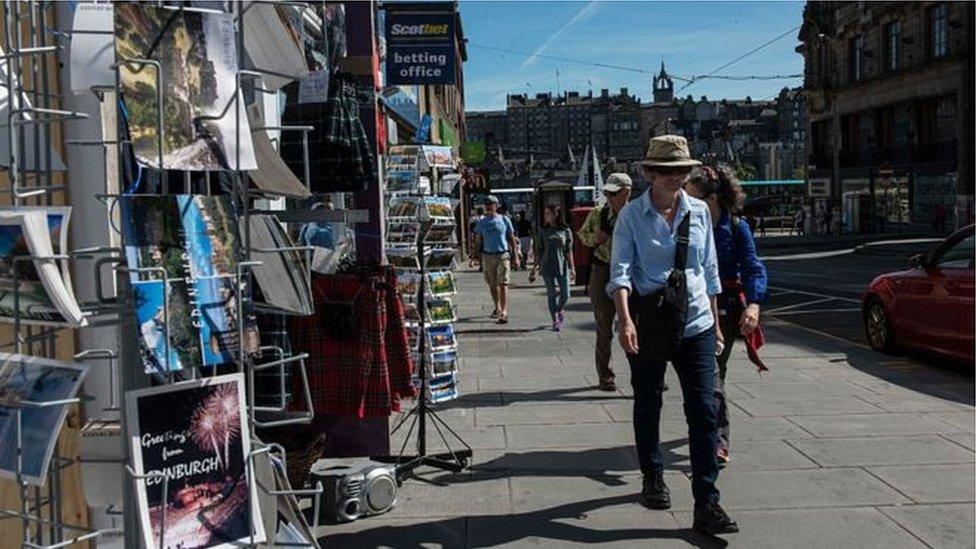Councils want increased tax powers 'to get old local government back'
- Published

Councils are demanding increased powers on tax from the Scottish government in a bid to get "the old, powerful local government back".
The local authority body Cosla says there needs to be "a more sophisticated debate about sustainable funding".
That must include councils having "the right financial levers", according to Cosla president Alison Evison.
The government said it wants to "devolve more power to give communities a greater say about public services".
Mes Evison made the call in a speech to the organisation's annual conference.
Councils across Scotland employ more than 240,000 people - providing nearly 10% of jobs.
Together, they spend almost £19bn a year on providing local services.
'Voice of the communities'
To help councils with this, Ms Evison said that "issues of taxation have to be looked at, not avoided".
Some councils have called for the powers to introduce a so-called tourist tax, which visitors would pay as part of hotel stays.
Holyrood ministers have so far been reluctant to grant them the authority to do this, although First Minister Nicola Sturgeon has ordered a consultation into the idea.
But Ms Evison said: "Scottish government cannot get upset or annoyed when we look at raising more of our own finance through things like discretionary local taxation and particularly the transient visitor tax.
"We are uniquely placed to take the voice of the communities in which we live and work and to boost its volume, to raise the issues which matter."

Analysis by Jamie McIvor, BBC Scotland local government correspondent

Local authorities argue a tourist tax could give them more financial freedom
Councils have long argued for greater financial powers.
They are heavily dependent on the Scottish government for cash.
Much of their money comes straight from the government - some of it is tied to specific projects or objectives.
Business rates are, in effect, set nationally.
And council tax increases are currently capped at 3%.
Local government organisation Cosla believes councils need more financial freedom in order to have more effective local democracy.
The argument is that how to raise money and how much should be in the kitty should be part of the debate - not just how how to spend it.
More recently that argument has become focused around a "tourist tax" or "visitor levy" - some councils including Edinburgh want such a charge and Cosla supports them.
The Scottish government recently announced a consultation on the issue. Some in the tourist industry remain very concerned.

Ms Evison told the two-day conference in St Andrews her demands on the Scottish government were "similar" to those made by Finance Secretary Derek Mackay on the UK Treasury.
She said her message to him was: "Local government is a legitimate sphere of government in Scotland, not a sub-committee."
Ms Evison added that local authorities needed "appropriate core funding for essential services", including enough money to pay staff a "fair wage".
'Adapt to change'
She made the case for councils to have more powers over tax as she told the conference that authorities needed to be able to adapt to changing times.
"The world is changing and I think we need our agenda to be more about getting the old, powerful local government back," she said.
"A strong powerful local government with a strong agenda could lead to real change for the better right across Scotland.
"I am not prepared to put other organisations or sectors before local government. Alongside us as partners, yes. As our superiors, no."
A Scottish government spokesman said: "We want to devolve more power to give communities a greater say about their public services.
"That is why we have launched a review, jointly with Cosla, to find ways to transform local democracy in Scotland."